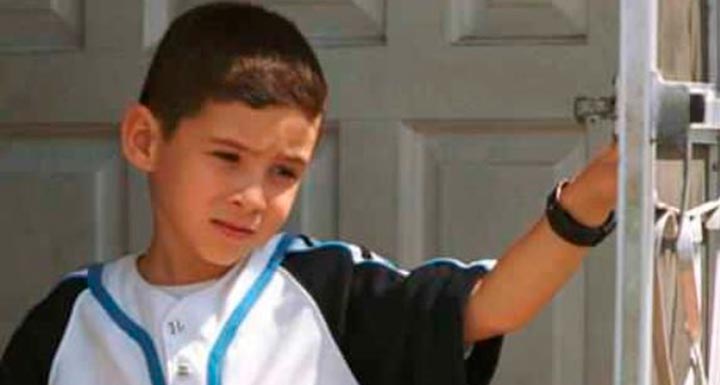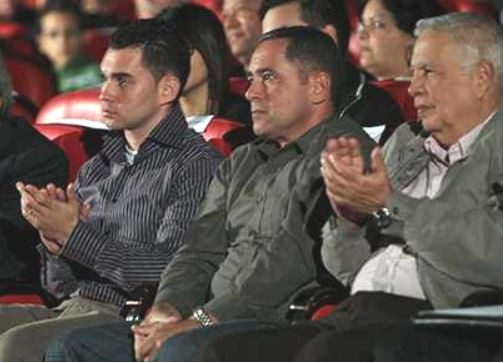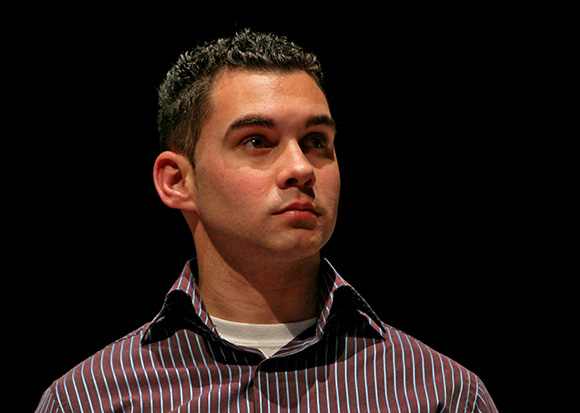
Mesa Redonda is 15 — and still on the air
Mesa Redonda (Round Table), Cuban television’s evening program of news, commentary and advocacy, on Tuesday (Dec. 16) marked its 15th anniversary with the participation of the young man whose saga prompted its creation: Elián González.
 Elián’s story — well known to Cuban-Americans — can be summarized thus: two weeks short of his 6th birthday, the boy was one of three survivors of a boat that sank while crossing the Straits of Florida. His mother was among the drowned.
Elián’s story — well known to Cuban-Americans — can be summarized thus: two weeks short of his 6th birthday, the boy was one of three survivors of a boat that sank while crossing the Straits of Florida. His mother was among the drowned.
Rescued near Fort Lauderdale on Nov. 25, 1999, the boy was turned over by U.S. authorities to distant relatives who lived in Miami’s Little Havana. A legal battle ensued between the relatives, who wanted to keep him permanently in the United States, and his father, Juan Miguel, who wanted him returned to their native country.
To report and comment on that custody battle, Cuba’s national television — at the urging of then-President Fidel Castro — launched Mesa Redonda as a nightly program. Government officials and specialists on U.S.-Cuba relations, immigration laws and international law were among the many guests who appeared in the program to discuss the ongoing situation. Castro himself joined the panels 45 times.
Eventually, legality and common sense prevailed and Elián was returned to his father and his homeland on June 28, 2000. Mesa Redonda continues to be aired, as it deals with other topics of national and international interest.
Now 21, Elián has kept himself relatively out of the public eye. He attended a military academy and reportedly is studying engineering at Camilo Cienfuegos University in his native Matanzas province.
In December 2013, he was one of 200 Cuban youngsters who attended the World Festival of Youth and Students in Ecuador. In an interview published at the time in the website Cubadebate, he said that he enjoyed his privacy.
“I’m a little shy, so when I stand up somewhere and know that the whole world is looking at me and I’m perhaps the center of attention — it’s pretty tough. I’d rather pass unnoticed,” he was quoted as saying.
 In an interview with CNN, also at that time, he blamed the U.S. government for spurring the exodus of Cuban rafters.
In an interview with CNN, also at that time, he blamed the U.S. government for spurring the exodus of Cuban rafters.
“Just like [my mother,] many others have died attempting to go to the United States,” he said. “But it’s the U.S. government’s fault. Their unjust blockade provokes an internal and critical economic situation in Cuba.”
“But despite that, even with all its problems, Cuba has progressed over the years,” he added. “The progress we have made is all thanks to Cuba’s courage, our dignity, and our continued fight for a more just model.”
At Mesa Redonda’s anniversary celebration this week, held at Havana’s Lázaro Peña Theater, Elián and his father were given a special recognition. A video of their return to Cuba in 2000 was shown to the audience.
In voiceover, Elián is heard saying: “The fact that Mesa Redonda was created because of me, because of a small boy, shows […] our incredible love for our children.”
Also honored were the relatives of the three Cuban intelligence agents currently held in U.S. prisons.

